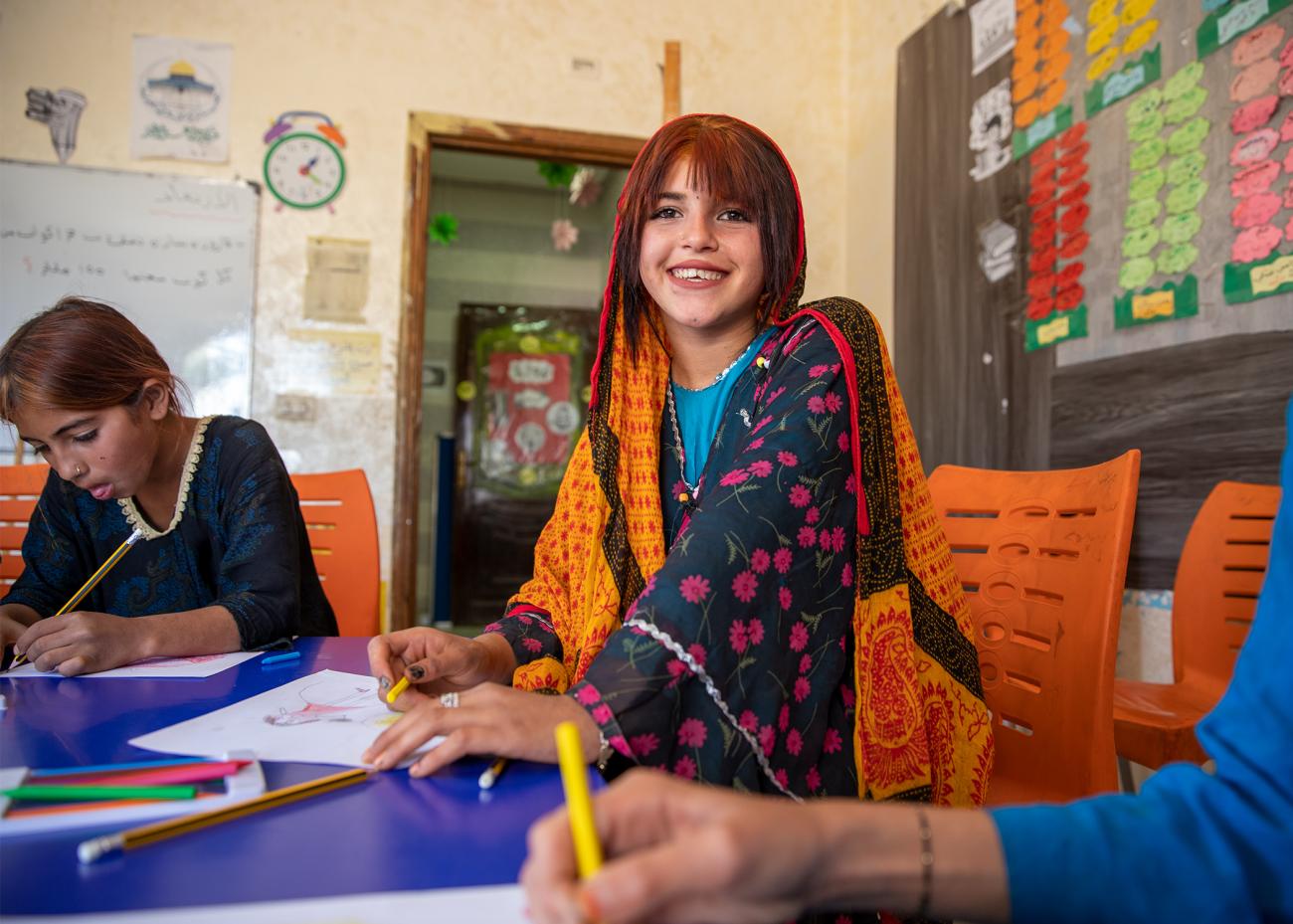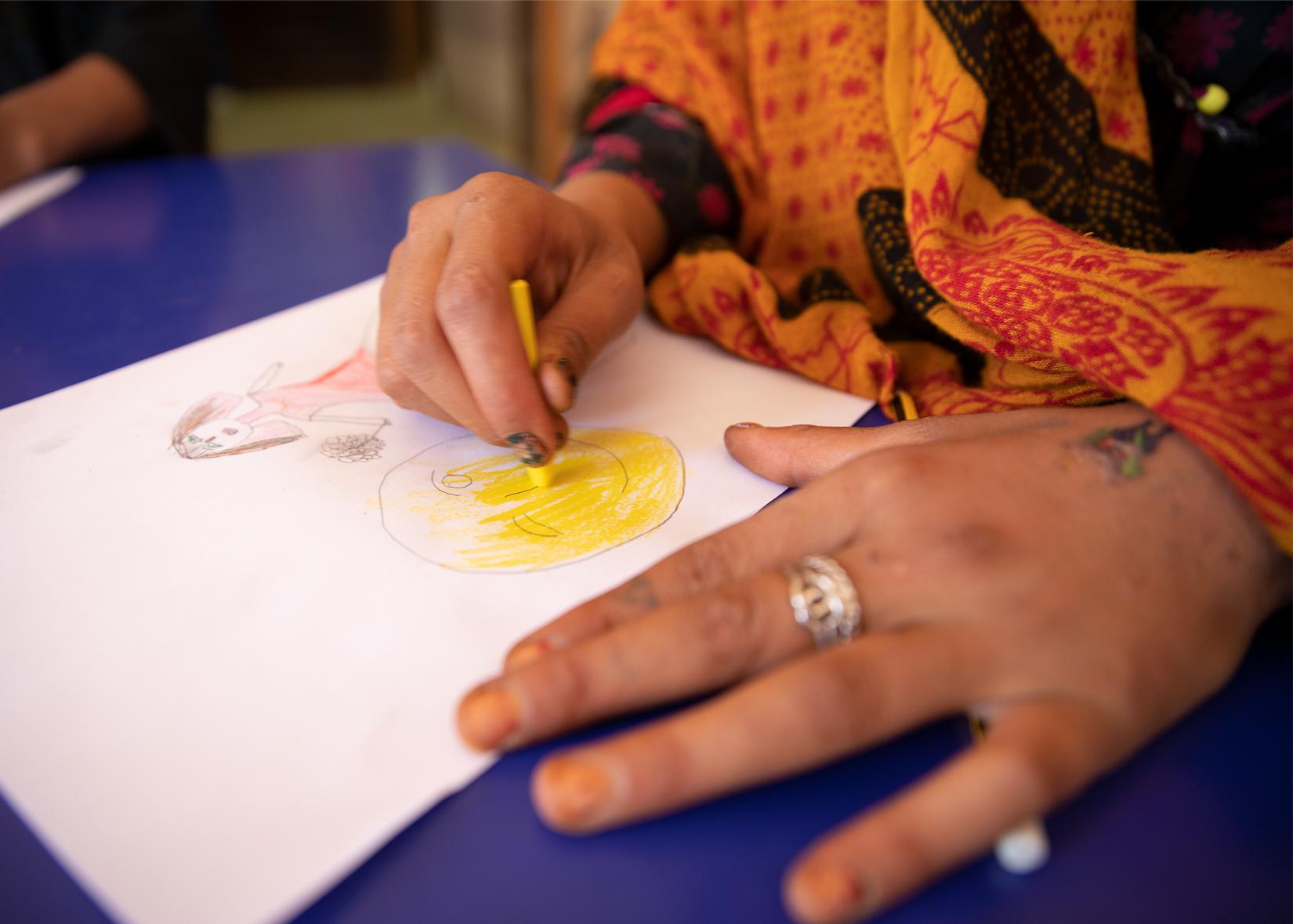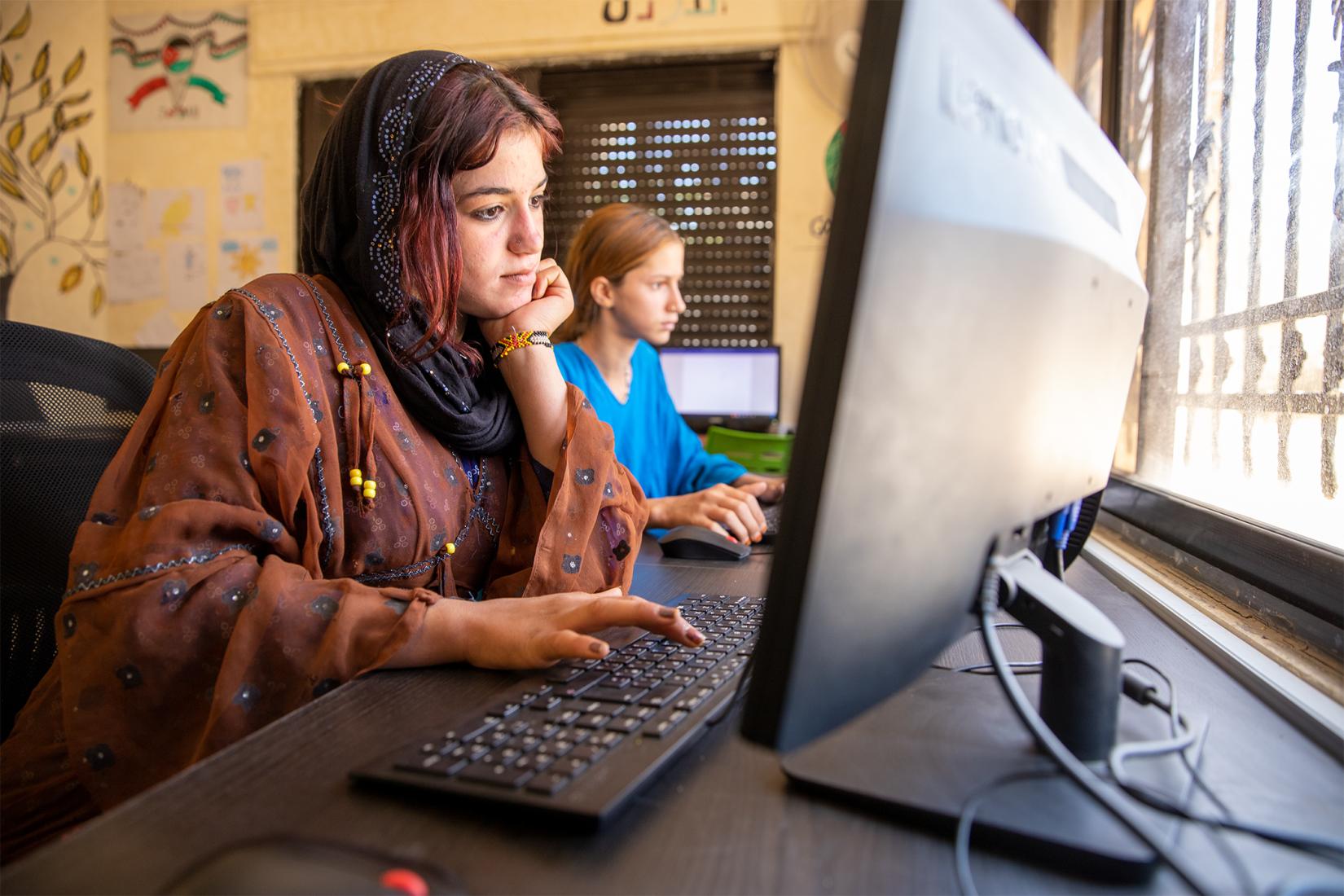From dropping out to dreaming big: Ghazala’s second chance at Makani

At Makani Centre, 13-year-old Ghazal finds her voice through colours, friendship, and a safe space to learn, dream, and express herself freely.
Every year, Makani centres provide vulnerable children, including over 2,500 children from the Dom community, with safe and inclusive spaces where they learn, play and build friendships.
At a UNICEF-supported Makani Centre, 13-year-old Ghazala radiates the bright and joyful energy of someone who has found a space where she belongs.
“Makani is just so beautiful,” she says with a wide smile. “The facilitators are so kind to me and I learn so much here.”
Ghazala lives with her parents and six siblings and is from a marginalized Jordanian minority community known as the Dom, which historically has been a nomadic group. As the family speaks Turkman at home, Arabic was difficult for her to learn - until she found the support she needed at the Makani centre.
“We don’t speak Arabic at home, but here, I learned it along with mathematics and many other activities that I did,” Ghazala explains.
Because of seasonal migration of the Dom community, Ghazala’s education was disrupted, and she was out of school for a few years.
“I dropped out of school when I was only in Grade 2,” she recalls. “But I’ve been attending the Makani centre for many years now - I can’t even remember how young I was when I started.”

A Place to Learn and Belong
Makani, which means “My Space” in Arabic – is exactly that for Ghazal: a place to learn, feel safe and express herself freely. UNICEF and its partners established Makani centres across Jordan to provide vulnerable children from all backgrounds access to learning, protection, and psychosocial support in safe and inclusive environments.
“Makani is not just a place for learning,” Ghazala says. “I have so much fun here. My favourite activity is painting.”
And when Ghazal talks about painting, her face lights up.
“Painting makes me feel so good,” she says. “Creating things out of my imagination, expressing my feelings using colours – this is the nicest thing. When I see my finished painting, I feel like all my emotions are there.”
Sometimes Ghazala finds it hard to express her feelings with words - but never with colours.
“I like to paint flowers, girls in dresses, and smiley faces,” she says. “I colour them like a designer! Smiley faces give me positive energy, and they make other people, who see my painting, smile too.”
Creativity, Confidence, and Community
At Makani, Ghazala has found what every child deserves: a safe space, community of friends and trusted adults, all who help her thrive.
“I have so many friends here, and it feels great,” she says. “We talk, share our thoughts and feelings, and play together. My life feels so colourful because of the things I have – my loving family, my beautiful friends, and this amazing centre where I can be myself.”
The facilitators at the Makani centre have left a lasting impact on her life.
“I feel safe here,” Ghazala says. “I’ve never been shouted at. The facilitators are kind and understanding. They treat me like family.”
Through her time at the Makani centre, Ghazala has also gained important life skills and the confidence in how to navigate challenges that may arise.
“The facilitators taught me how to stand up for myself and ask for help when I need it,” she says. “They taught me to always speak to an adult I trust, like my mom or someone at Makani centre.”

A Future Full of Dreams
Ghazala is full of big dreams and she’s not afraid to share them.
“My mom always wanted to finish her education before getting married, but she didn’t get the chance. I want to change that,” she says confidently.
The Makani centre has given Ghazala the support and encouragement she needs to chase that goal.
“I hope one day I can go back to school and continue learning,” she says. “Makani is helping me get there.”
UNICEF is grateful for the European Union for helping us reach the most vulnerable children and adolescents with integrated services through the Makani programme in Jordan, including over 2,500 children from the Dom community.
This story was originally published by UNICEF and written by AbdelMajid El-Noaimi. To learn more about UNICEF’s work in Jordan, visit the link below.


